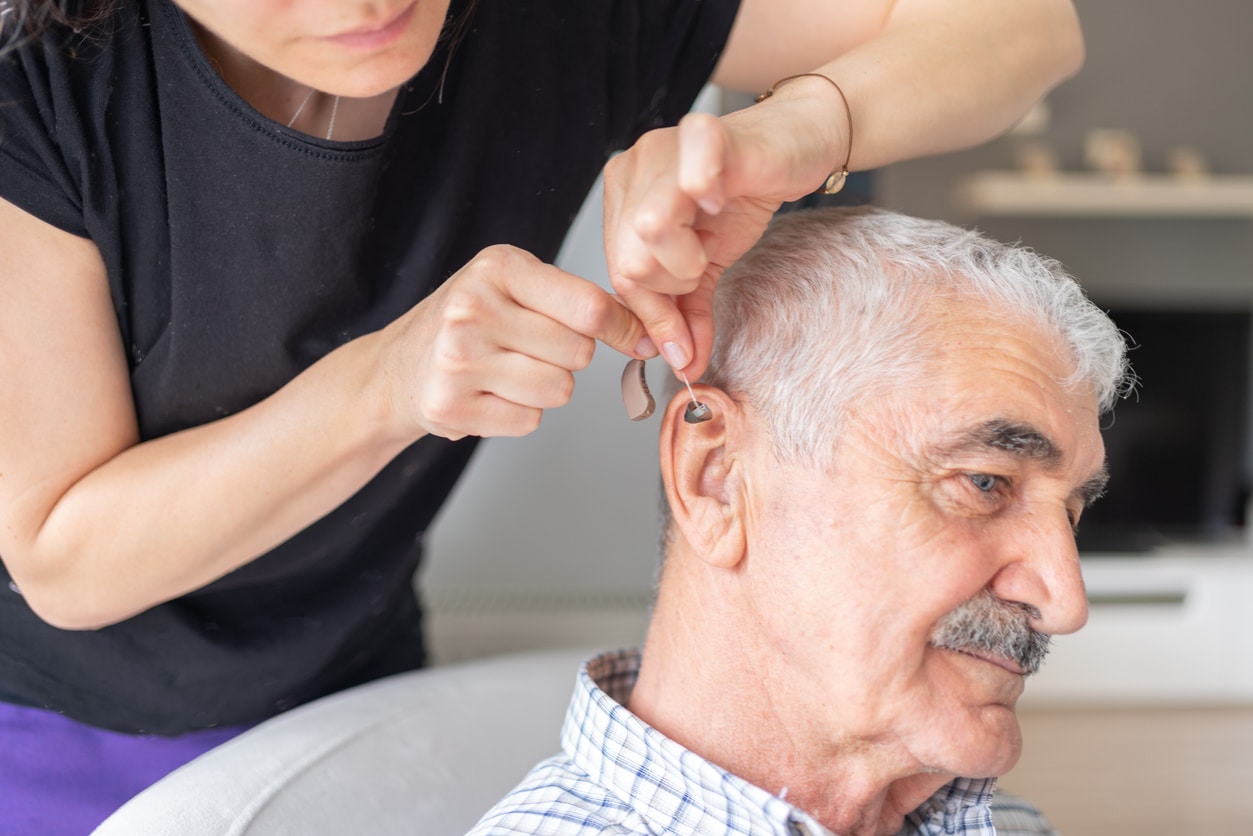Approximately 28.8 million U.S. adults could benefit from the use of hearing aids. If you’ve decided to begin your hearing treatment journey, you’ll likely have questions about choosing the right device.
We’ve broken down the different types of hearing aid styles and features below to help provide guidance as you make your choice.
Hearing Aid Style Options

Hearing aids come in one of two broad style categories including:
- Behind-the-ear (BTE): Sits behind the ear with tubing that routes sound into the ear canal. The design works for all types of hearing loss.
- In-the-ear (ITE): Sits partially or completely in the ear canal. They are more discreet than BTE styles but are not suitable for some types of hearing loss, such as more pronounced cases.
In-the-ear devices are broken up into four subgroups, including:
- In-the-canal (ITC): Sits in the ear canal with only the hearing aid shell visible.
- Completely-in-canal (CIC): Sits entirely in the canal with only a small plastic handle visible from the outside.
- Invisible-in-canal (IIC): Sits in the second bend of the ear canal and is completely invisible.
The right style for you will depend on your visibility preferences and hearing needs. An in-the-ear device might be best if you have mild hearing loss and prefer a less visible aid. A behind-the-ear device might be better if you have a more pronounced hearing loss.
Hearing Aid Feature Options
Some hearing aids may have additional features including but not limited to:
- Rechargeable batteries. Hearing aids have either rechargeable or disposable batteries. Which option you choose will depend on your lifestyle needs.
- Bluetooth®. Some hearing aids have Bluetooth capabilities that connect to your phone, laptop and more.
- Apps or remotes. Depending on the programming of your device, you may be able to adjust the setting in your device based on your needs. For instance, your device might require different settings at a concert than at Woodinville Café.
- Water-resistant coating. No hearing aids are waterproof, but some come with a water-resistant coating to protect against accidental splashes.
Choosing the right hearing aid will depend on your lifestyle and preferences. To speak with a hearing aid specialist about your options, contact Hearing Advancement Center today.